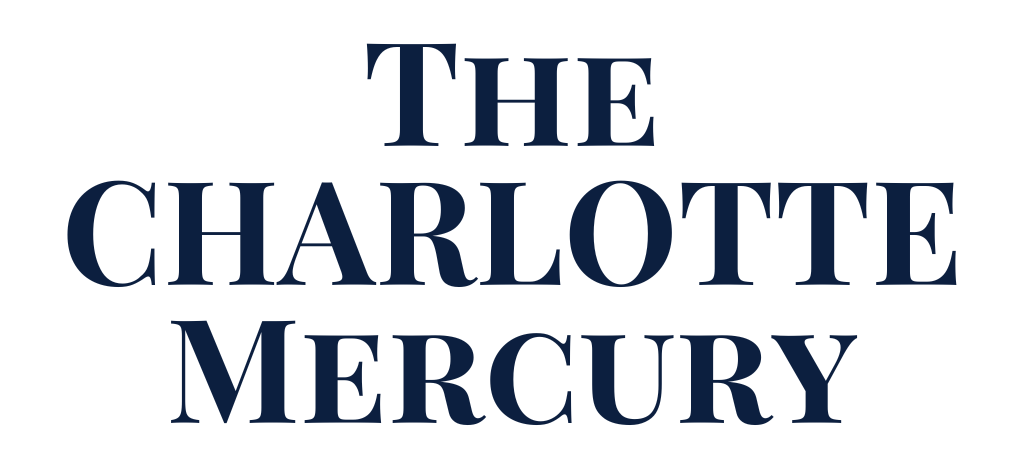The Low-Turnout Lottery
Seven candidates, one mayor, and a primary, you’ll probably forget
The Quietest High-Stakes Race in Charlotte
Here’s how it works: seven people run for mayor, most of Charlotte ignores it, and about 12% of voters pick the person who’ll steer a $3.5 billion city government. It’s not new, but it is happening again.
This year’s 2025 mayoral primary has everything: neighborhood feuds, housing proposals with actual unit counts, Cash App campaign financing, Venmo receipts, and zoning polemics that read like HOA fan fiction. The only thing missing? A public that votes.
The primary is Tuesday, September 9. Early voting starts August 15. Until then, we’ve compiled a voter’s field guide to Charlotte’s most crowded mayoral contest in nearly two decades.
—
Vi Lyles: The Incumbent in Cruise Control
Campaign Energy: “Just enough.”
First elected in 2017, Mayor Vi Lyles is seeking a fifth term. Her coalition includes longtime civic leaders, big-dollar donors, and a City Council majority that mostly follows her lead. Her style is calm, procedural, and at times completely unbothered.
She’s absorbed major hits—Tiawana Brown’s federal indictment, CMPD’s golden parachute scandal, and Metro Transit’s latest faceplant—but rarely loses composure or control. She has yet to debate a challenger or acknowledge them publicly.
If nothing explodes, she’s the favorite. But in a fractured field, even a strong incumbent can trip over turnout math.
—
Brendan K. Maginnis: The Housing Technocrat
Campaign Energy: “Public policy as Google Sheet.”
Maginnis is the only candidate to drop a housing platform with concrete numbers: 25,900 affordable units. His campaign site is basically a municipal white paper. He supports fare-free public transit, police reform, zoning overhauls, and sidewalk equity.
He’s also a Marine veteran, a father of three, and the only candidate proposing to eliminate single-family zoning altogether. If you like specificity, he’s your guy. If you like flash? Well…
—
Jaraun “Gemini” Boyd: The Redemption Story
Campaign Energy: “From carceral state to candidate.”
Boyd brings the most visceral narrative in the field: formerly incarcerated, now a leader in bail reform and community reentry. He runs Project B.O.L.T., supports cash bail reform, and campaigns in low-turnout neighborhoods often skipped by the political class.
His pitch is simple: “If you want a mayor who understands the people who’ve been left out—vote for one.” The challenge? No institutional support, no big fundraising. Just boots, ballots, and B.O.L.T.
—
Delter Kenny Guin III: The Wildcard with a Word Count
Campaign Energy: “Yes, I will answer your question with an autobiography.”
Guin is a business owner, author, and first-time Charlotte candidate who previously filed to run for Congress in New York. His website is a manifesto against bad traffic, bad healthcare, and bad HOAs. He says he’s running “to give people hope and truth.”
What that translates to in campaign terms remains a bit murky. But he’s not lacking in confidence—or keyboard stamina.
—
Tigress S. A. McDaniel: The Venmo Visionary
Campaign Energy: “Cash app me the revolution.”
McDaniel is an entrepreneur, advocate, and prolific litigator with a growing social media following and very little institutional support. She fundraises through mobile payments, posts campaign updates via selfie, and files lawsuits the way most of us send texts.
She sees her candidacy as a referendum on political gatekeeping. Whether that translates to votes depends on whether her digital followers remember where their polling place is.
—
Terrie D. Donovan: The Last-Minute Republican
Campaign Energy: “You may not know me, but I filed on time.”
The only Republican in the race, Donovan entered just before the filing deadline. Her message is law-and-order, small business, and infrastructure—the kind of old-school GOP platform that might resonate in Ballantyne but probably not in Belmont.
Still, in a field this crowded, strange math happens. If Democratic voters splinter and GOP turnout holds, she could land in runoff territory.
—
Rob Yates: The Libertarian Minimalist
Campaign Energy: “Eliminate the office of campaign finance.”
Yates, a longtime Libertarian, opposes stadium subsidies, zoning restrictions, and—if we’re being honest—probably this article’s word count. He’s the only candidate asking supporters to donate to suicide prevention nonprofits instead of his own campaign.
The pitch: Vote for smaller government, or don’t vote at all. Either way, he’s fine.
—
The Real Contest: You vs. Apathy
In Charlotte’s last mayoral primary, turnout barely cracked 15%. That means fewer than 1 in 6 registered voters determined who would oversee the city’s growth, transit, policing, and budget.
This year’s race is sharper, weirder, and arguably more consequential. Whether it’s housing equity, HOA reform, crime policy, or municipal broadband, the stakes are real.
So skip the “they’re all the same” excuse. Grab a sample ballot. Pick your favorite flavor of chaos. Just don’t sit this out and pretend you weren’t warned.
Unconventional:
About the Author:
☕ Jack Beckett files his copy with a pen in one hand and a toasted bagel from Einstein Bros. Ballantyne in the other. When not deciphering campaign finance PDFs, he’s wondering how many voters it takes to elect a mayor (answer: not enough). You can message him directly on Twix/X at @QueenCityExp.
Explore Poll Dance 2025 for full election coverage. Also check out our sections on Politics, News, Business, and Housing—plus our friends at Glory Days Apparel.
Need the fine print? Head here:
—
Creative Commons License
© 2025 Strolling Ballantyne / The Charlotte Mercury
This article, “The Low-Turnout Lottery,” by Jack Beckett is licensed under CC BY-ND 4.0.
“The Low-Turnout Lottery”
by Jack Beckett, The Charlotte Mercury (CC BY-ND 4.0)
